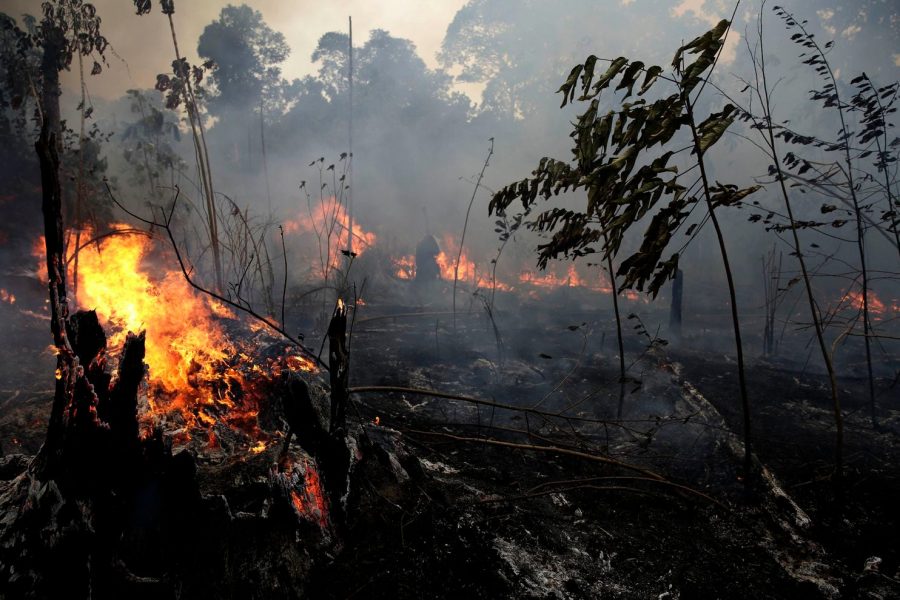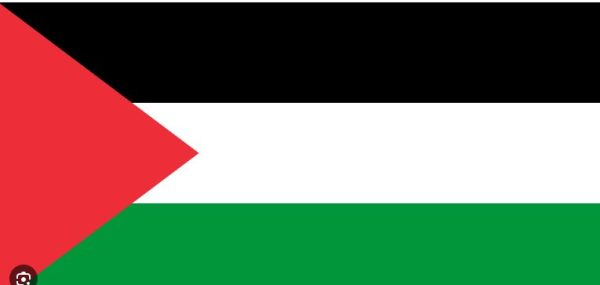What effects will the Amazon fires have on the world?
A fire burning trees on the road to the Jacunda National Forest near the city of Porto Velho, which is part of the Amazon.
September 6, 2019
According to the National Institute for Space Research (INPE), their satellite data has detected more than 80,000 fires in the Amazon rainforest in Brazil since January of 2019. The current ongoing fires began in mid-August 2019 and were detected by the Moderate Resolution Imaging Spectroradiometer (MODIS) on August 15th.
Considering the fact that the Amazon rainforest is an ecosystem that the entire earth relies on, the fires that have been ripping through the rainforest are very alarming and could potentially have devastating consequences on the entire world as we know it.
The Amazon rainforest is the world’s largest tropical rainforest, covering much of northwestern Brazil and extending into Colombia, Peru, and other South American countries, famed for its biodiversity. To put the size of the Amazon into perspective, it is even larger than the next two largest rainforests — in the Congo Basin and Indonesia — combined.
With all of that in mind, you may be wondering “what could have possibly been the culprit of the wildfires in the Amazon that have been intensifying since August and what effects will they have on the rest of the world?”
According to The Verge, experts claim deforestation and a practice known as ‘slash-and-burn’ are responsible for the vast majority of the flames. People tear down patches of forest, allow the surrounding area to dry out, then set the remains on fire to create space for agriculture or other development. They might also set fires to regenerate the soil and encourage the growth of pastures for cattle. Interestingly enough, Brazil is the world’s top exporter of beef, according to the US Department of Agriculture.
This is pretty scary when you consider the fact that everyone on Earth benefits from the health of the Amazon. As its trees consume carbon dioxide and release oxygen, the Amazon pulls planet-warming greenhouse gases out of the atmosphere. Without it, climate change would accelerate. However, as the Amazon rainforest is sabotaged by logging, mining, and agribusiness, it may not be able to provide the same barrier.
Additionally, those closest to the fires will experience the most immediate effects. Residents say the air quality is still making it difficult to breathe, even to this day. Moreover, a huge global study on air pollution discovered that among the several countries across the world it observed, Brazil showed one of the most severe increases in mortality rates whenever there is more soot in the air.
Furthermore, because of the fact that fire isn’t a natural phenomenon in Brazil, the fires can also have tremendous impacts on local plants and animals. The Amazon is home to one in ten of all animal species on Earth and experts predict that they will be greatly affected by the fires in the short term.
According to Jos Barlow, a professor of conservation science at Lancaster University in the UK, plants and animals are “exceptionally sensitive” to fire in the Amazon. Even fires with little to no concentration with flames just 30 centimeters tall can kill up to half of the trees burned in a tropical rainforest.
Sources
The Washington Post: https://www.washingtonpost.com/climate-environment/what-you-need-to-know-about-the-amazon-rainforest-fires/2019/08/27/ac82b21e-c815-11e9-a4f3-c081a126de70_story.html
Express: https://www.express.co.uk/news/world/1168299/amazon-rainforest-fire-how-did-amazon-fires-start-cause-deforestation-how-long-fire
The Verge: https://www.theverge.com/2019/8/28/20836891/amazon-fires-brazil-bolsonaro-rainforest-deforestation-analysis-effects#PFPubz












